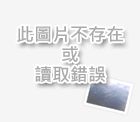PolyU Chair Professor Wai-Yeung Wong Raymond Shares the latest Developments in Compounds
2023/12/11
Google+!

The Department of Chemistry hosted a "College of Science Master Lecture" and invited Hong Kong Polytechnic University (PolyU) Chair Professor and Dean of the Faculty of Science, Professor Wai-Yeung Wong Raymond, to speak on November 29 in the Communication Building. The lecture topic was "Recent Advances in Phosphorescent Metal Complexes." During the Q&A session, Prof. Wong answered students' questions about scientific topics, and some students expressed curiosity about the research environment and resources in Hong Kong universities, to which Prof. Wong provided detailed explanations.
Dr. Chen Chih-Hsin, the chair of the Department of Chemistry, stated that Prof. Wong is highly esteemed in the academic community. In addition to serving as a Chair Professor at PolyU, he is also a Fellow of the Royal Society of Chemistry, the editor-in-chief of the journal "Topics in Current Chemistry," an editorial board member of "Journal of Materials Chemistry C," "Energy Advances Journal," and "Journal of Organometallic Chemistry."
Prof. Wong pointed out that phosphorescent metal complexes, due to their excellent luminescent efficiency and stability, have become the primary luminescent materials for organic light-emitting diode (OLED) devices in recent years. Differing from visible light phosphorescent metal complexes, his research focuses on developing phosphorescent metal complexes for near-infrared light. Since near-infrared light has lower energy and stronger penetration capability, the application of organic light-emitting diode components in areas such as optical communication and medical fields can be realized.
Wun-Hao Jhang, a first-year Chemistry master's student, mentioned that the research team at PolyU achieved a redshift of the emission wavelength of osmium metal complexes to near-infrared light (wavelength >700 nanometers) while maintaining high efficiency (external quantum efficiency >5%) through simple adjustments of the ligand's push-pull electronic groups. He noted that as our university is also involved in the synthesis of osmium metal-related optoelectronic materials, it is well understood that achieving both near-infrared light and high efficiency through simple ligand adjustments is not easy. The lecture provided significant inspiration, offering new ideas for future research directions and molecular design.
Viewers: 2060